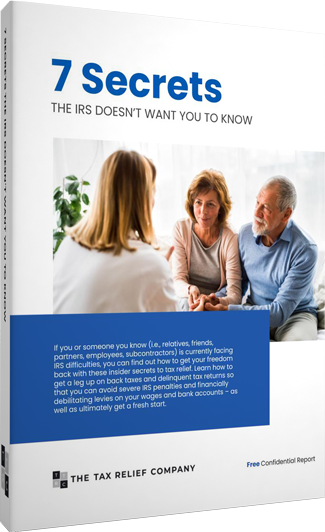Qualified Expenses for Collection Alternatives
The IRS allows very specific living expenses when you are in collections. Here are the guidelines you need to know.
You owe the IRS money. You review your living expenses and income. And determine how much you can afford to pay the IRS. But will they accept it?
Perhaps.
It all depends on how your monthly living expenses match up to IRS budgeting. These budgeting guidelines or “allowable living expenses” which are more commonly known as “collection financial standards and they are rather rigid. The IRS uses the Collection Financial Standards for use in calculating repayment of delinquent taxes.
Allowable living expenses include those expenses that meet the necessary expense test. The necessary expense test is defined as expenses that are necessary to provide for a taxpayer’s (and his or her family’s) health and welfare and/or production of income.
The IRS will not necessarily accept your “payment reality”, but instead replace it with theirs. The result is often a higher payment than you can actually afford. These are called the National and Local Standards and they change every March.
Here are some examples of how the IRS allowable living expenses work. This is a general overview and subject to adjustments. The amounts noted are current as of 2/16/2021 until they change in March.
- Car payments are currently limited. You are limited to $521 for one car or $1042 for two or more (no matter where you live). Any payment greater than these amounts will be challenged by the IRS and added back into your free cash flow. There are also rules to increase these two amounts and an exemption for one car up to $3,450.
- Auto operating expenses – gas, maintenance, insurance. To the IRS, the cost of operating your car depends on where you live. They separated the local standards into 4 regions with several sub-regions under each. As such you are limited to the standards based on where you reside.
- Monthly out-of-pocket medical expenses. Right now, the IRS is automatically allowing $56 a month for medical cost per member of your household that are under age 65. If you are over 65, the IRS will allow more just $125/ If you spend less than the allowed amount, the IRS will still allow you the $56 standard amount without question or verification. These expenses are not based on your location. However, you can deduct, your actual medical insurance premiums as there are standards.
- Cost of housing and utilities. The IRS allowable expense guidelines will limit your housing/utilities based on the county you live in and the number of people in your household (up to a family of five).
- Food, clothing, entertainment, personal care. No matter where you live, the IRS will allow the same amount to feed and clothe your family.
- Credit cards are treated harshly by the IRS, with their guidelines directing agents not to allow any expense for this type of deb
But there are ways to negotiate around the allowable living expenses. For starters, if you can repay the IRS in 60 months or less, the IRS will allow all your excess expenses, and respect your budget and reality as it is. The IRS can also accept a lower payment for a while, and then increase it later, and tier your payments. In most cases, the IRS can go as long as two years with a lower payment.
With proper negotiations, IRS agents understand that these guidelines may not work and will only result in an agreement that you cannot keep. They are often understanding and will agree on a payment schedule that you will be able to adhere to rather than forcing an agreement where payments will never be made.
Negotiating with the IRS is most often not in your best interest. The IRS handbook, called the Internal Revenue Manual, is complicated and lengthy. The IRS is not your friend. Their allowable living expenses are designed to get them more money and refuse expenses they do not think are necessary.
If you have a tax problem and owe more than $10k to the IRS or state but can’t pay in full, contact our firm today. We help people find tax relief by thinking outside the box to devise strategies to get the best possible outcome. We also prepare/file years of unfiled tax returns and sometimes settle their tax debt for a fraction of what’s owed. Call today, 877-355-8010 to end your tax problems.


